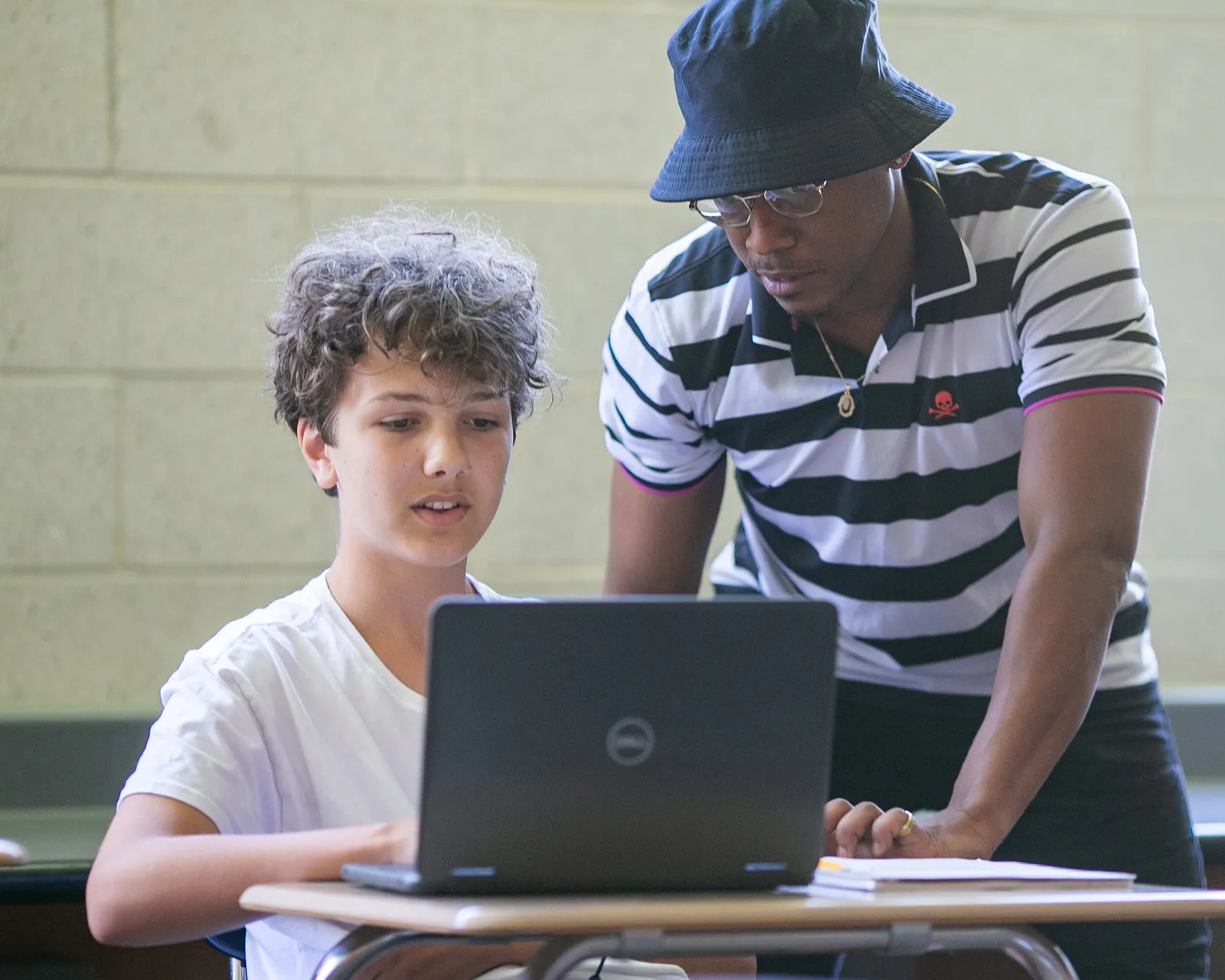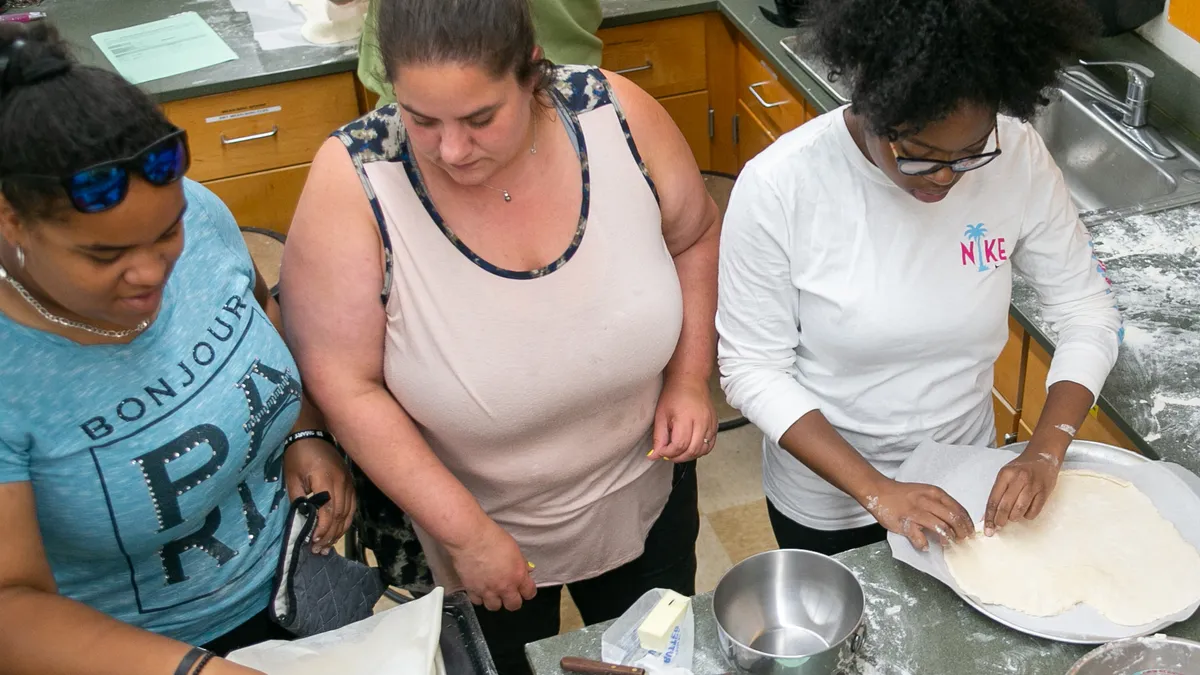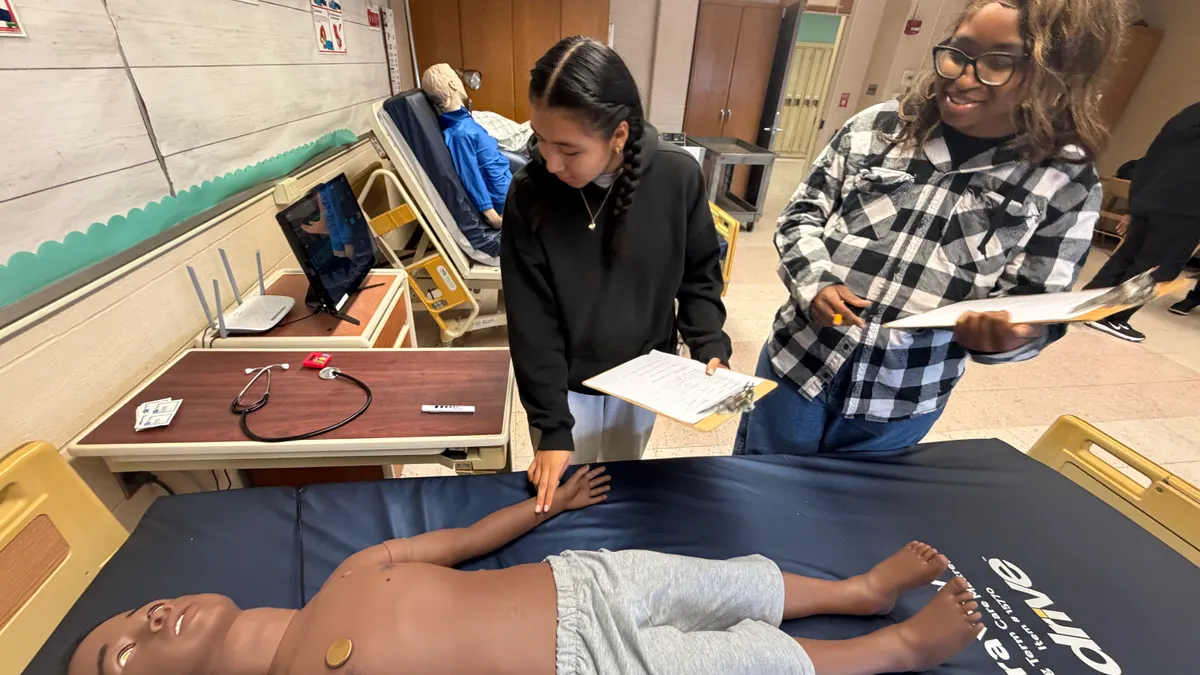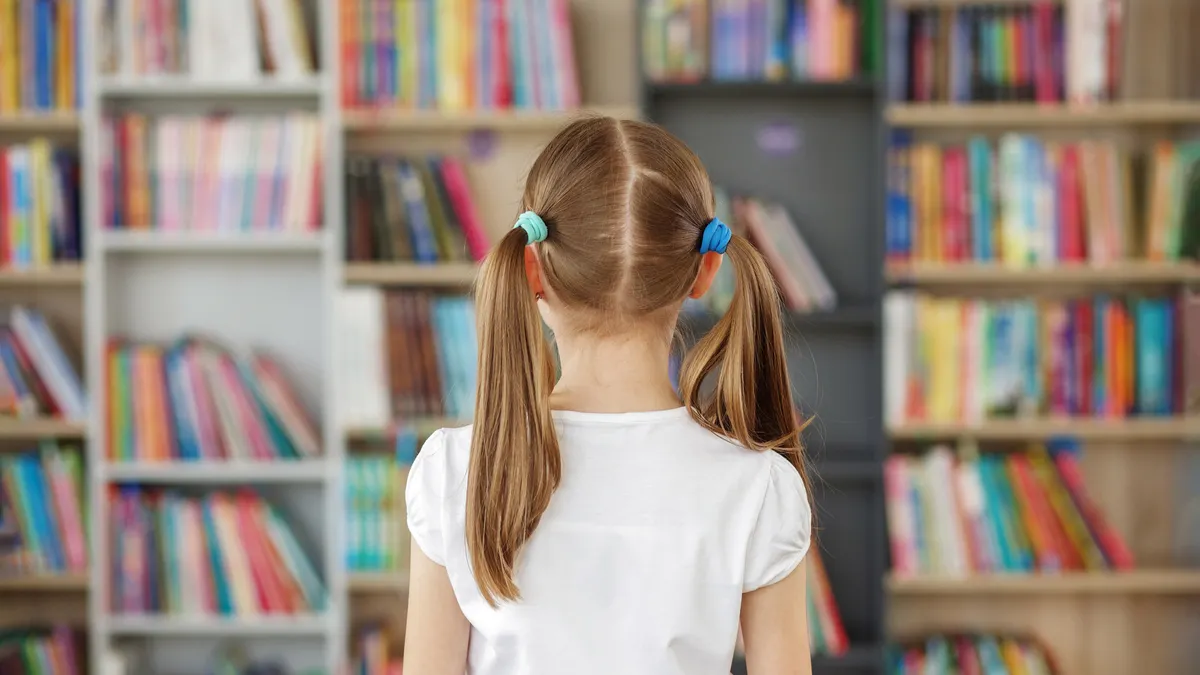About two months before Connecticut's Manchester High School was set to start its 2022 summer school program for credit recovery, Amanda Navarra, an innovation and research strategist at Manchester Public Schools, discarded those plans and took a bold move to redesign the entire program.
The original plan called for a traditional credit recovery program that was the norm before the pandemic. But after the 1,700-student school held a robust 2021 summer enrichment camp aimed at helping all students reconnect with school after remote learning, Navarra wanted students who were at risk of not earning a diploma to have fun through rigorous hands-on instruction that encouraged their self-confidence. The school also offers other student summer programs.
Now, in its second year, FLIGHT School — which stands for Future, Learning, Imagine and Innovation, Goals, Here and Trust — has helped several dozen students who were struggling academically recover enough course credits to get back on track for graduation. In 2022, 95% of the students in FLIGHT School earned all seven available credits, Navarra said.
"This program was built to address those pain points and get rid of them as much as I could," Navarra said of the barriers faced by disengaged or disconnected students.
That meant having powerful learning experiences led by teachers, and with peers who students connected with through collaboration and the sharing of their vulnerabilities and fears. In one class called Science in the Kitchen, for example, students work in small teams on projects such as building a trestle bridge — made entirely out of raw food — that could hold at least 5 lbs.
In another class that combines instruction in English, performing arts and health, students research, write and produce 15-30 minute podcasts. They also write and record songs, write poems and do other creative projects.
Sisters Khadijah Register, a rising 11th grader, and Zyia Register, a rising 12th grader, both participated in FLIGHT School this summer. And both earned enough credits to get them back on track academically, they said.
Khadijah said she liked that the FLIGHT School classes were small. "The teachers will understand you more and take the time to actually participate with the students and help them with their work," she said.
One of Khadijah's favorite science assignments was working with other students to figure out how to move plastic cups using only a string and a rubber band. For Zyia, a memorable group project involved building a model of a truck using food. Typically, she likes to work independently, but in this case she enjoyed being part of a team collaborating on the project.
"We had challenges that broke us down, but we didn't give up. We kept on going," she said.
Working through challenges
Students have to apply for FLIGHT School and, once accepted, must promise they will show up every day and engage in and complete their work. To earn missed credits, they work at an accelerated pace to demonstrate mastery for general courses in English, math, science and other subjects.
There's emphasis on collaboration among students, as well as between students, teachers and staff. "We are all in this together," Navarra said. "We succeed together, we face challenges together. One person's failure is everyone's failure."
This year's FLIGHT School ran half days for four weeks, and 39 rising juniors and seniors participated. Students take three classes a day and each class has about a dozen students.
The first few days were reserved for team-building exercises and setting expectations that the work will be fast-paced and problem behaviors will not be tolerated.
The school used $70,000 in federal pandemic relief funding to operate the program this summer, Navarra said.

Zvlu King, a teaching artist at the program, helped students earn performing arts, English and health credits by writing podcasts and songs, writing personal narratives and through other assignments. While the lessons sound fun, it can be a challenge to motivate students and get them out of their comfort zones, particularly if they are hesitant to perform in front of others, King said.
"No, it's not easy. That's the point. That's the challenge we decided to take upon ourselves," King said.
He said students like the flexibility of the lessons and the hands-on learning, as well as the small class sizes. "It's our duty to bring an innovative way of teaching and engaging with students, and that's basically the ultimate goal. That's my motivation."
The Register sisters said since they were able to recover course credits, their plan for the upcoming school year is to stay focused, participate in class and not get distracted by other students.
"No matter what they're doing, I have to get my work done," said Khadijah Register.
Navarra closely tracks participants' performance once the school year begins. Based on data from participants in 2022, the program is exactly what some students need to help them reconnect to learning and get back on the path to a diploma. Several participants even recovered enough credits to enroll in honors classes and get accepted into their top choice colleges.
But other students fluctuate in performance during the school year or fall even further behind. "I think just all the pain points that they had before were still here when they came back to school, and they just struggled," Navarra said.
She's exploring how to incorporate some of the successful elements of FLIGHT School into the school year. "I think that's the challenge, because for some students, it's a different model that may be a little closer to what they need, and we don't offer it all year," she said.
A 'more holistic approach'
Other school systems across the country also have been moving away from traditional remedial summer school programs in favor of a blend of high-quality instruction and enriching activities. Many of the transformed and expanded summer programs were paid for using federal pandemic emergency funds.
Schools, however, are facing obligation deadlines for those allocations, with the last deadline being September 2024 — meaning districts will need to find other sources of funding to keep those programs going in the future. Some summer school experts recommend analyzing data about the progress of participants to build financial support for funding programs going forward.
Other types of support can come from collaborative networks sharing best practices, said Jenny Curtin, director of education for the Boston-based Barr Foundation, which provides grants to school systems and other government and nonprofit organizations.
While the Barr Foundation has awarded grants to Manchester Public Schools for high school redesign, it did not fund the summer program.
Curtin said FLIGHT School is a promising model because it centers on students who have been least well-served and encourages their participation in authentic and collaborative ways.
The program is a "more holistic approach to educating students around identity development and belonging, and community building," rather than the high school experience just being about accruing credits, Curtin said.
Navarra's advice for others wanting to create a similar program is to be relentless about high expectations for students and staff. She also recommends that program leaders create an environment where people can feel comfortable making mistakes, and where even failures are seen as learning opportunities.
"We all have to have that mentality," Navarra said, "because if you're going to grow, if you're going to take a risk, if we're going to be able to demand those high expectations, that's going to mean that at some point, every single person is going to be uncomfortable, or they feel vulnerable that they put themselves out there."




















